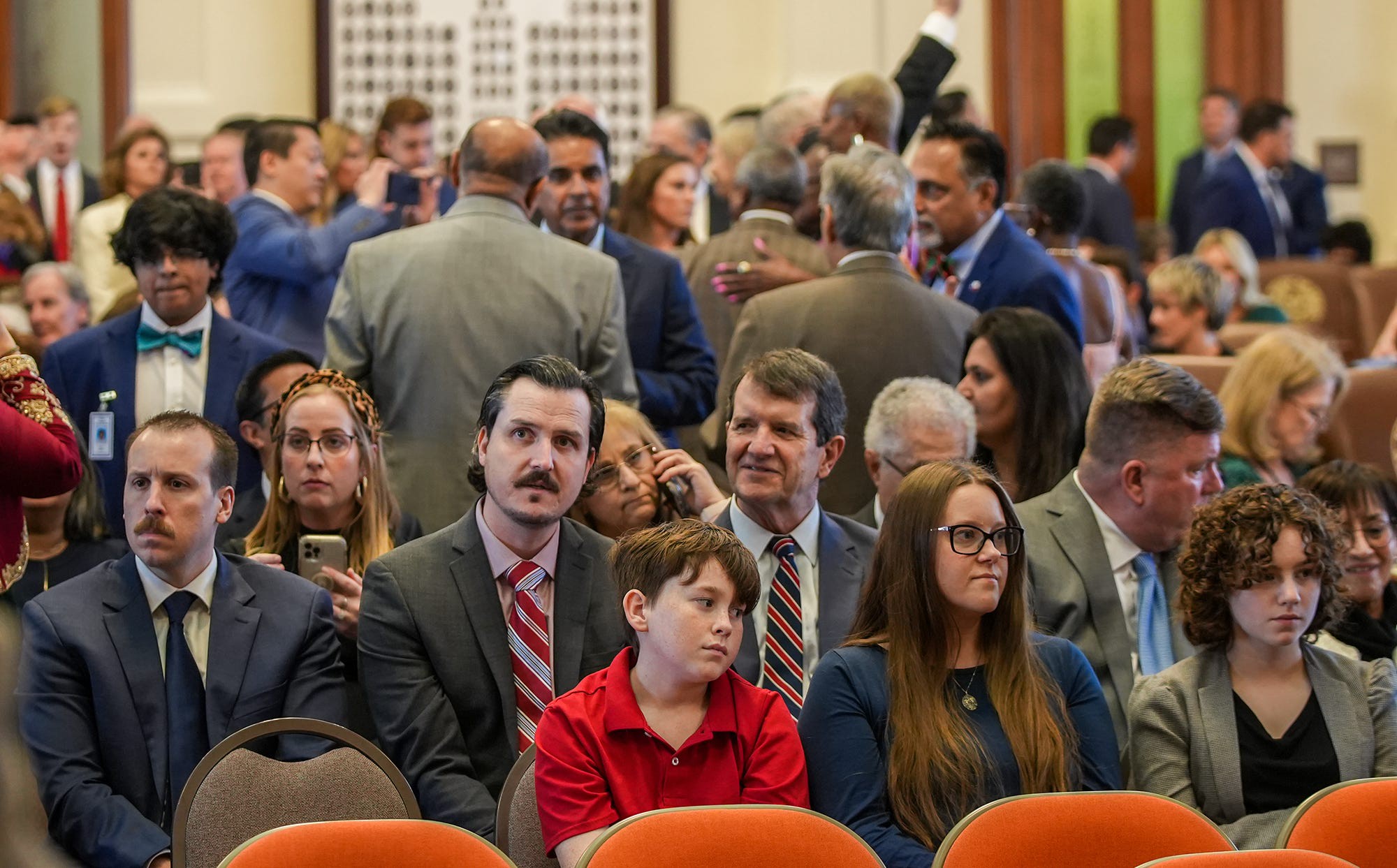politics
What if Texas House can't agree on a speaker before session starts?
The first day of any legislative session is steeped in tradition and heavy on decorum. But that could change if the speaker's race is not settled.
Published December 22, 2024 at 12:02pm by John C. Moritz

When Texas lawmakers return to the Capitol each January in odd-numbered years, the opening of the legislative session is generally a cross between the first day of school and a family reunion with upward of 200 relatives.
Handshakes, hugs and backslaps are the first order of business. And members from both chambers often bring their spouses and children to the floor to bask in the camaraderie. The galleries are generally packed with friends and supporters who don't have the privilege of being on the floor.
But with the race for House speaker unsettled and increasingly rancorous just a few weeks before the start of the 2025 session, the atmosphere could just as easily take on the vibe of a dysfunctional family at the reading of the patriarch's will in which members of several factions are convinced that members of the other have connived to gain a disproportionate share of the inheritance.
State representatives, their families and other guests crowd the House chamber at the Capitol for the opening of the 88th legislative session Jan. 10, 2023.
Ricardo B. Brazziell/American-Statesman
Instead of backslapping, there could be accusations of backstabbing. And maybe even worse.
All of this is a scenario, not a prediction. It's not beyond the realm of possibility that either of the two front-running candidates — Republican state Reps. Dustin Burrows of Lubbock and David Cook of Mansfield — could cobble together a governing majority before the 89th Legislatures is gaveled to order at noon Jan. 14.
It's also possible that another House member will step in as a compromise choice and walk off with the prize.
And if someone can reach the magic number of 76 votes in the 150-member House, it would not be terribly surprising if an overwhelming majority in both parties fall in line and cast their votes for the inevitable winner in the interest of decorum and putting bruised feelings in the past.
But suppose the deadlock in the speaker's race that was exposed Dec. 7 when Cook emerged as the choice of most House Republicans while Burrows demonstrated at least some bipartisan strength remains unresolved on opening day. Because House speakers must be elected each session, the state constitution designates the Texas secretary of state as the chamber's presiding officer until a speaker is chosen. That officeholder is Jane Nelson, who served in the Senate for 30 years before Gov. Greg Abbott elevated her to secretary of state in 2023.
Secretary of State Jane Nelson, greeting state Rep. Venton Jones on the opening day of the 2023 session, will hold the gavel until a new speaker is chosen.
Ricardo B. Brazziell/American-Statesman
So if the race for speaker is a free-for-all on opening day, it'll be up to Nelson to manage the affair. There will be nomination speeches and seconding speeches for any candidate who wishes to step forward. Some members might ask to speak against a candidate.
If more than two candidates are nominated, it could take multiple ballots.
And that could lead to countless side caucuses, perhaps right there on the House floor, where a bank of video cameras is in operation nonstop when the chamber is in session. The microphones might or might not pick up on such conversations. Audience members and reporters might catch a snippet or two.
Or members could huddle privately, either in a back hallway or in any room with a lockable door. Social media will be awash with speculation as the drama — both seen and unseen, heard and unheard — corkscrews through the Capitol.
And what would become of the spouses and other guests who were invited to sit alongside their elected relatives and friends at the elegant, antique wooden desks that are arranged in neat rows on the House floor? Do they remain in place even in the event of a bare-knuckle brawl, or will they be ushered away so as not to be caught in the verbal crossfire?
The wider question, in the event that such a scenario does come to pass, would be what happens next? Would any acrimony that surfaces in a floor fight carry over into the session? Can Republicans keep together their governing majority, or would personal animosity undermine the partisan advantage?
And if it does, how much would it play into the hands of the House Democrats, who are outnumbered 88-62? And would the Democrats even have the organizational strength to exploit any advantage that might be served up to them?
Time will tell how it'll all shake out.

